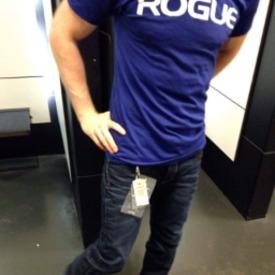Body Comp Using Smart Scale

voicimonpasseport
Posts: 10 Member
Hey all,
So I haven’t been using a scale for the past year and a half because to me, it was useless in my mission to to healthy, fast, and strong. Numbers went out the window.
I’ve always been a runner but in the past several years, I run about 20-30 miles on average a week because I love it. I started increasing my weight training to three to four days a week as well. My diet is mostly vegetarian because I feel I get more variety that way and enjoy it, but I still eat animal proteins. In general, I eat very clean (even when I pig out) because that’s what my body craves.
I decided to go ahead and get a smart scale to see how the rest of my body composition was. These are the results:
5’4” (29 y/o but let’s just round up)
125lbs
45.9% muscle den.
64.5% water
4.8% bone den.
13.4% BF (uhhhh. No?)
There’s gotta be something funky going on here. Isn’t this suppose to all add up to 100%? I highly doubt I only have 13.4% body fat, as much as I’d love to brag. I certainly have some well carved-out muscles but like most women, I’m not extremely lean. What do these numbers look like and does anyone think that something is wrong with my scale?
Have you used a smart scale before?
So I haven’t been using a scale for the past year and a half because to me, it was useless in my mission to to healthy, fast, and strong. Numbers went out the window.
I’ve always been a runner but in the past several years, I run about 20-30 miles on average a week because I love it. I started increasing my weight training to three to four days a week as well. My diet is mostly vegetarian because I feel I get more variety that way and enjoy it, but I still eat animal proteins. In general, I eat very clean (even when I pig out) because that’s what my body craves.
I decided to go ahead and get a smart scale to see how the rest of my body composition was. These are the results:
5’4” (29 y/o but let’s just round up)
125lbs
45.9% muscle den.
64.5% water
4.8% bone den.
13.4% BF (uhhhh. No?)
There’s gotta be something funky going on here. Isn’t this suppose to all add up to 100%? I highly doubt I only have 13.4% body fat, as much as I’d love to brag. I certainly have some well carved-out muscles but like most women, I’m not extremely lean. What do these numbers look like and does anyone think that something is wrong with my scale?
Have you used a smart scale before?
0
Replies
-
It's not supposed to add up to 100%.
And it is doing some very huge guessing, doing bio-impedance (BIA) based on electrical charge sent up one leg and down the other.
From that along with usually gender, age, height and it basically is using formula from stats on many people to guess those things on you.
Even if you could somehow manage to present the exactly same hydrated body to the scale, you'll get at best 5% accuracy on BF% - the other stuff is even worse.
Considering the fact you won't have same hydration level, even worse.
What's best is consistency since accuracy isn't that good - so at least you can see a decently accurate trend.
Get on, measure, turn off, turn on, get on again and measure.
Water % is just that for the body as a whole - blood volume, water stored with carbs in muscles, drank a glass, ect.
That would normally be a part of LBM (Lean Body Mass), everything not FM (Fat Mass), which also includes the muscle mass it's also a part of.
So if you have short legs compared to others your height, scale doesn't know that, and sees the reading as probably meaning low BF%.5 -
I have a scale at home that claims giving me, in addition to the weight, all the information you cited, especially the body fat percentage in which I am extremely interested. But unfortunately, the only reliable indicator remains weight. The body fat percentage, for example, extremely fluctuates even under apparently similar conditions.
To calculate the body fat percentage there are some tools where the principle is to pinch your skin at some indicated points in your body (like the core or the biceps) and measure the thickness of the skin in that area, which again gives a very rough idea of the actual body fat percentage.0 -
Skin folds in the hands of a skilled person can be decently accurate. Links at bottom here show where they are taken from, and study results as to general accuracy potential.
https://exrx.net/Calculators/BodyComp
Then again, could just use measurements and few different formulas to give an average. Here again, a body far removed from average will throw things off. Like some people have really large calves or forearms compared to other body parts, that will effect results.
http://www.gymgoal.com/dtool_fat.html
So while not accurate for an absolute figure, which doesn't matter really, you can track progress.
Just need to do measurements at time during month with least amount of water retention, and not after known water weight gains.
Morning after rest day eating normal sodium levels, not sore from last workout.
1 -
The scales are pretty bad, only minor usefulness as a trend maybe. Did you set the gender? If you didn't it will give you a completely bogus result assuming that you're a man. Also some models have a different set of equations for endurance athletes. It's all just estimations based on body weight, impedance, height, age, gender. It gives bogus results most of the time, if you haven't put all the correct info especially so.
I've used a cheap one for a while and even tracking progress it is pretty bad. It just seems body fat % comes out as a more noisey, less repeatable proxy for weight.0 -

Mine from yesterday!!0 -
I had the SECA test done at a doctors office and it was pretty accurate. There are some things you have to do before taking the test and the Metabolic test. I had to fast before the test so maybe it isn't as accurate as it could be. Also did it take into account the organs? It measured the Fat Mass, fat free mass (muscle, organs, bones, cartilage, tendons and ligaments), skeletal mass, body composition, water.0
-
I had the SECA test done at a doctors office and it was pretty accurate. There are some things you have to do before taking the test and the Metabolic test. I had to fast before the test so maybe it isn't as accurate as it could be. Also did it take into account the organs? It measured the Fat Mass, fat free mass (muscle, organs, bones, cartilage, tendons and ligaments), skeletal mass, body composition, water.
What led you to the conclusion that it was pretty accurate?4 -
I've used several and found the two sensor ones to be hopeless but the four sensor ones I've used with hand and foot sensors to be pretty reasonable accuracy both domestic (Omron) and commercial (Boditrax) but with the usual caveats that BIA is badly affected by variations in hydration levels.
In terms of value for money they are really good.
Do be consistent in how/when you use them, same time of day, fed or unfed, not after exercise.....
Don't expect every reading to be accurate, with regular use you get to recognise the weird readings and discount them.
OP if you were really 13.4% you would know it, that's extremely lean for a woman.
The pictures on Builtlean may give you a very rough guide.
https://www.builtlean.com/2012/09/24/body-fat-percentage-men-women/0 -
I have a smart scale myself and when I wrote about it a few smart scale nazi's did reply, by saying they are incorrect. I am aware that smart scales can be off, THOUGH, in my case, I went overtime down from 18 % of fat to 6% of fat. Even if this is not accurate, I did lose, the figures do not deny this. What I do notice is when you are well hydrated, you are less fat when you didn't drink that much during the day. My experience is that you have to weigh yourself the same time of day, after drinking the same amount of fluid a day.
Again, they might not be as accurate, but when the numbers go down, its a fact you, maintain, loose, weight or fat.
Also about the fat percentage, it depends if you are male or female, have subcutaneous fat or visceral Fat.
If you like to know your "real" fat percentage, they need to cut you open, I suggest you wait with this or have a DEXA scan, they tend to be the closest to the real truth. When you had a DEXA scan, compare it with the scale0 -
Burton_Bmc wrote: »... smart scale nazi's ...
Biggest lol of my day1 -
I track the BF% with my Aria scale out of interest and to see trends, but honestly, I think the best combination of ease of use, reproducibility and relative accuracy is the Navy BF calculator. http://www.webcalcsolutions.com/Fitness-Calculators/Body-Fat-Navy.asp?AcctNum=30
-
Or an average of a few formulas since getting measurements already.
http://www.gymgoal.com/dtool_fat.html1
This discussion has been closed.
Categories
- All Categories
- 1.4M Health, Wellness and Goals
- 398.2K Introduce Yourself
- 44.7K Getting Started
- 261K Health and Weight Loss
- 176.4K Food and Nutrition
- 47.7K Recipes
- 233K Fitness and Exercise
- 462 Sleep, Mindfulness and Overall Wellness
- 6.5K Goal: Maintaining Weight
- 8.7K Goal: Gaining Weight and Body Building
- 153.5K Motivation and Support
- 8.4K Challenges
- 1.4K Debate Club
- 96.5K Chit-Chat
- 2.6K Fun and Games
- 4.8K MyFitnessPal Information
- 12 News and Announcements
- 21 MyFitnessPal Academy
- 1.6K Feature Suggestions and Ideas
- 3.2K MyFitnessPal Tech Support Questions







